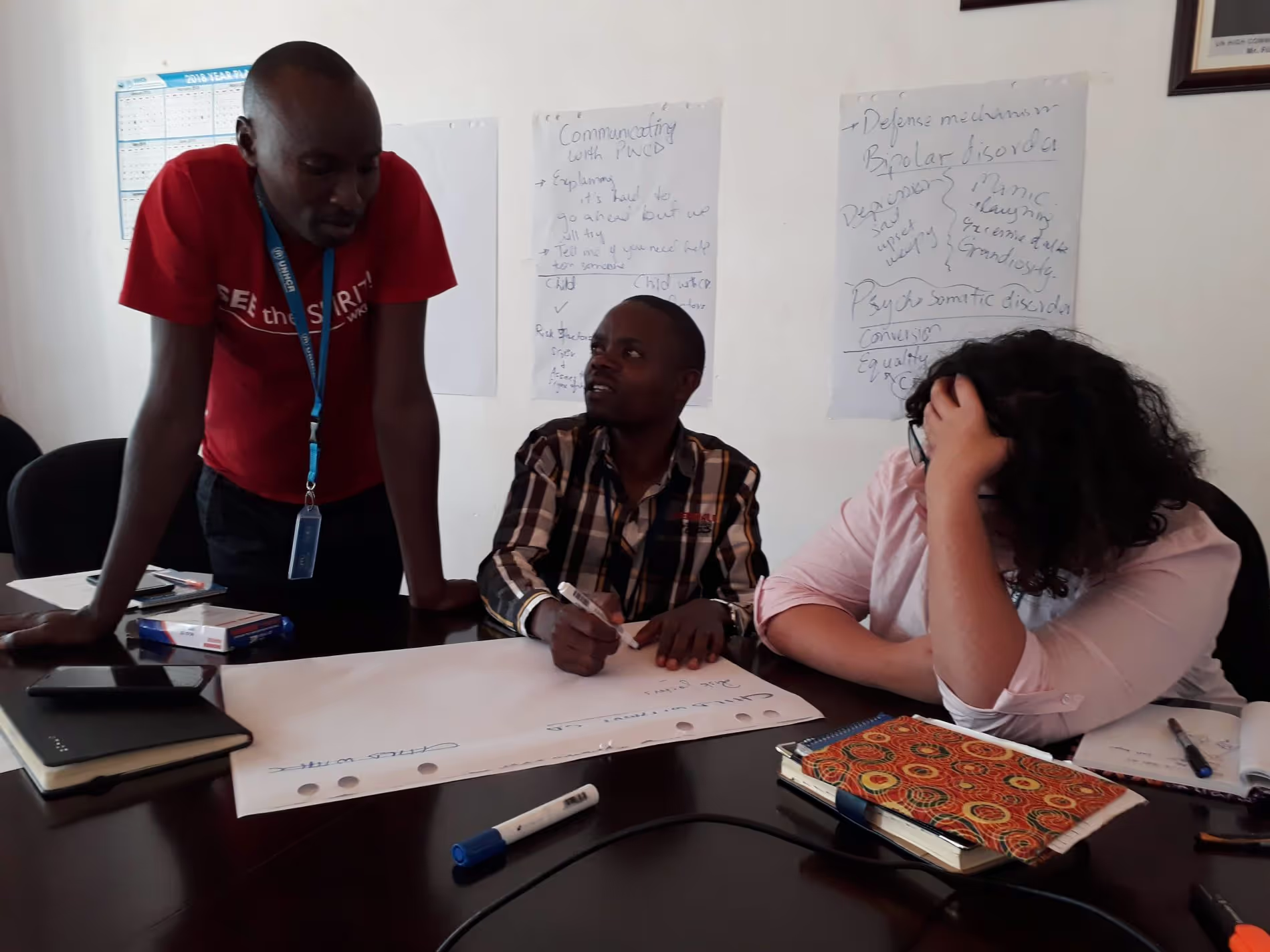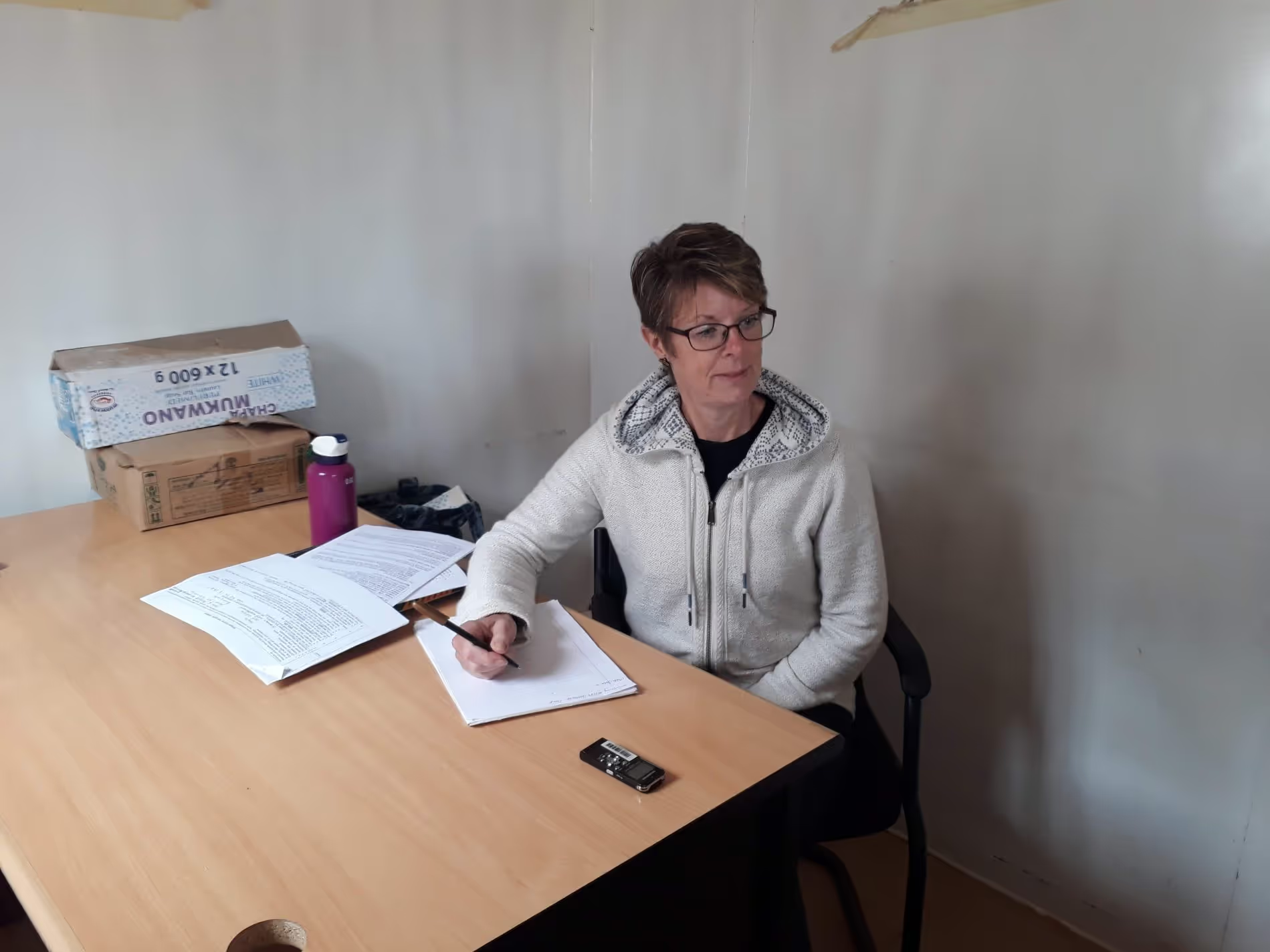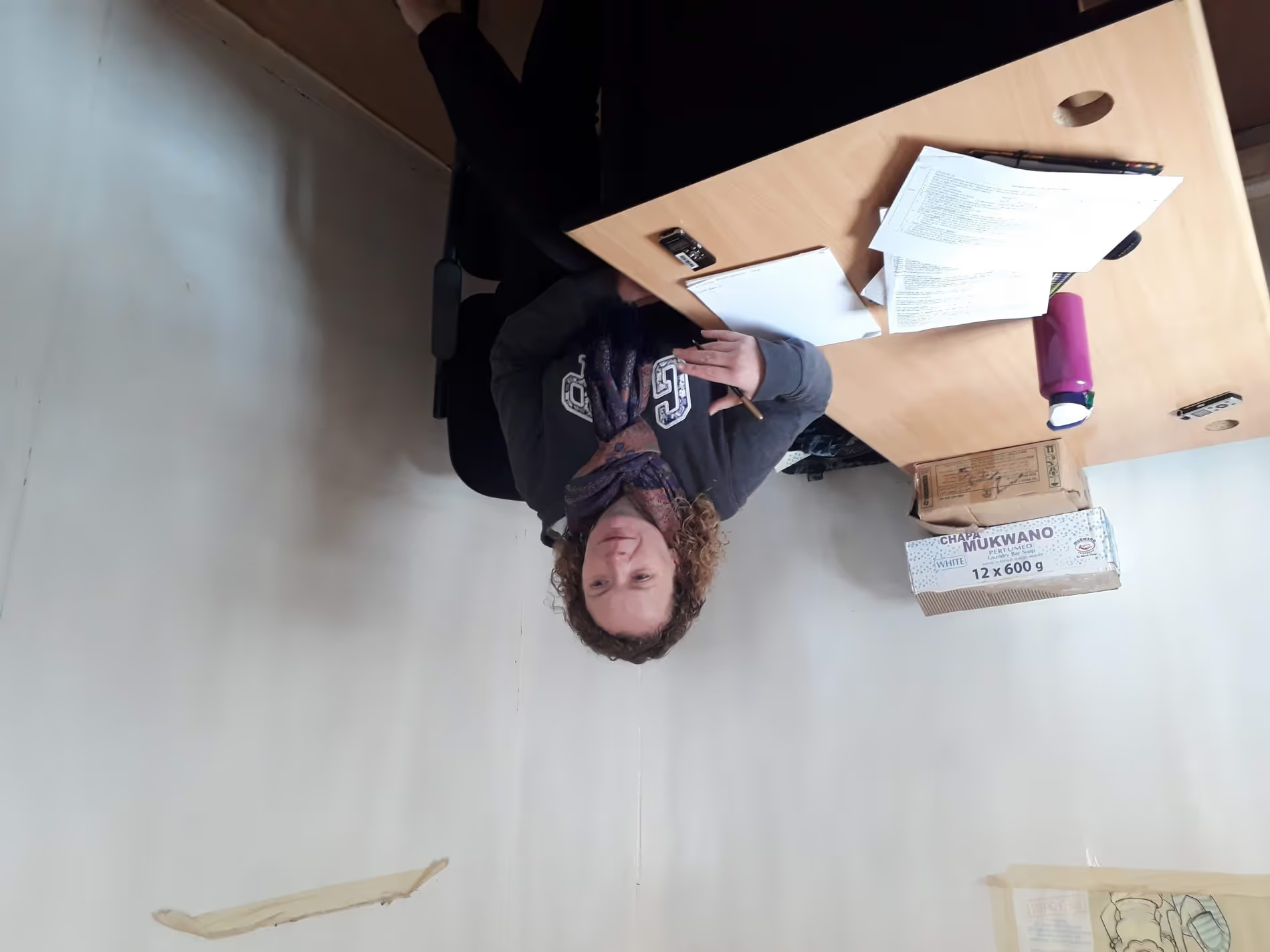The Voices of Experience

Our current project with the HIF builds on our 2016 work, on access to SGBV response services for refugees with communication disability, in Rwanda. The current project, a consultation carried out with UNHCR Rwanda, focuses on developing our understanding of how refugees with communication disability (CD) access SGBV prevention services, including sexual and reproductive health education (SRHE) (see previous blog, Prevention is better than a cure).To do this, we collected data from a wide range of sources to ensure we have a broad understanding of SRHE and sexual and gender-based violence (SGBV) prevention and response services, together with an understanding of the real life experiences of refugees with CD, and their careers.

Service providers
This is to help us to identify the real issue(s) people face, so that we can work towards responsive solutions that meet the needs of refugees with CD and the people who support them.
Our consultations began in May 2018, with focus-group discussions (FGDs) with disability, SRHE and SGBV service providers at national-level and in two refugee camps. Service providers included UNHCR, their partner organisations, and Rwanda government services including the police, the public prosecution service, the Ministry for emergency management and health providers. We spoke to 59 people, using topic guides to provide a basic structure for our conversations.
We asked service providers about the SRH and SGBV prevention services they provide, their experiences of working with refugees with CD and the challenges they face in providing responsive services to refugees with CD. In addition, we asked them for their suggestions about what is needed to make SRHE and SGBV services more inclusive and accessible. They told us about what they feel they need as service providers, and what they think refugees with CD and their families need, to improve access.
Service users
We also spoke to 21 refugees with CD and their carers, some of whom were known survivors of SGBV. We used semi-structured interviews to ask them about their lives with CD, including their experience of accessing SRHE and other services where they live.

Refugees talked about these and other topics, including their vulnerability, their social relationships, and their communication methods with family and others.
;
Literature review
To frame the issue in a global context, we conducted a desk-review of published literature from peer reviewed journals and open web sources. We anticipated that the literature on SRHE for refugees with CD in sub-Saharan Africa would be sparse – and we were right

We found only five papers that captured three or more of these issues together and none of them focused on CD specifically, referring to it only as part of wider work with people with different types of disability. We therefore synthesised literature about SRHE for people with communication disability in high and low-income settings, and in refugee and non-refugee settings. 31 papers were finally included in the desk review (watch this space).
The very rich and valuable data we collected were analysed using content and thematic analysis techniques, with a little help from a friend called computer-assisted qualitative data analysis software (CAQDAS)! The results reflect the reality of the lives of refugees with CD in Rwanda in relation to SRH and SGBV service access and, as some refugees told us, offered them the first opportunity they have ever had, to talk about their experiences and needs related to CD. It was a privilege to listen to the voices of experience – voices that are seldom heard.
In our final blog we’ll tell you more about the synthesis of our data and a national stakeholder workshop where a wide range of participants responded to our findings and stared to think about the future and how things might be changed.
Stay updated
Sign up for our newsletter to receive regular updates on resources, news, and insights like this. Don’t miss out on important information that can help you stay informed and engaged.
Explore Elrha
Learn more about our mission, the organisations we support, and the resources we provide to drive research and innovation in humanitarian response.